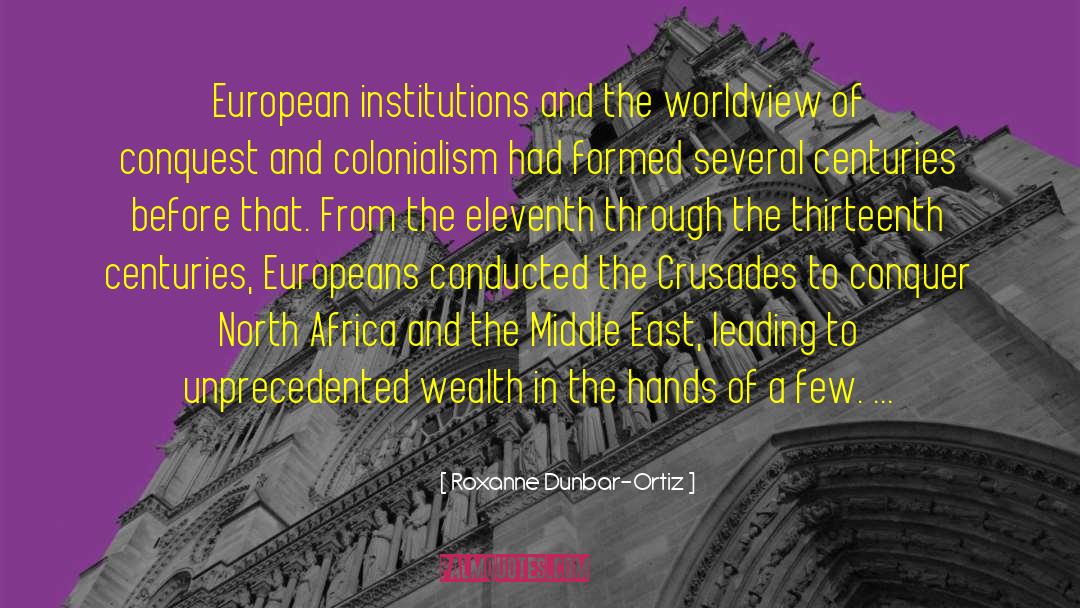Roxanne Dunbar-Ortiz Famous Quotes
Reading Roxanne Dunbar-Ortiz quotes, download and share images of famous quotes by Roxanne Dunbar-Ortiz. Righ click to see or save pictures of Roxanne Dunbar-Ortiz quotes that you can use as your wallpaper for free.
the out-of-control momentum of extreme violence of unlimited warfare fueled race hatred. "Successive generations of Americans, both soldiers and civilians, made the killing of Indian men, women, and children a defining element of their first military tradition and thereby part of a shared American identity.
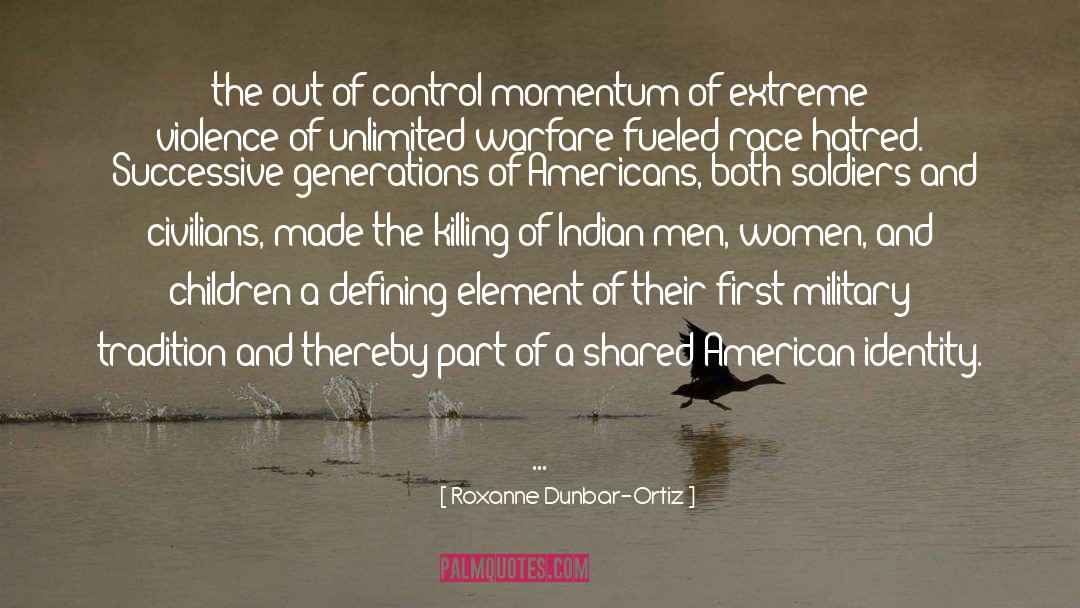
Under the crust of that portion of Earth called the United States of America - "from California . . . to the Gulf Stream waters" - are interred the bones, villages, fields, and sacred objects of American Indians. They cry out for their stories to be heard through their descendants who carry the memories of how the country was founded and how it came to be as it is today. [opening lines of the Introduction; ellipsis sic].
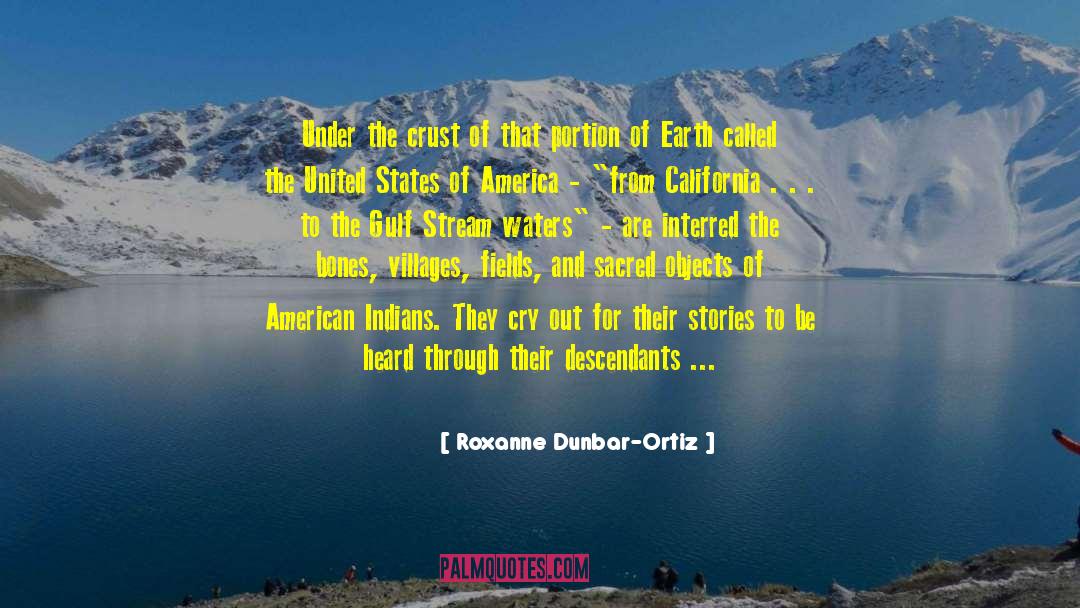
Condemned to death, the Delawares spent the night praying and singing hymns. In the morning, Williamson's men marched over ninety people in pairs into two houses and methodically slaughtered them.
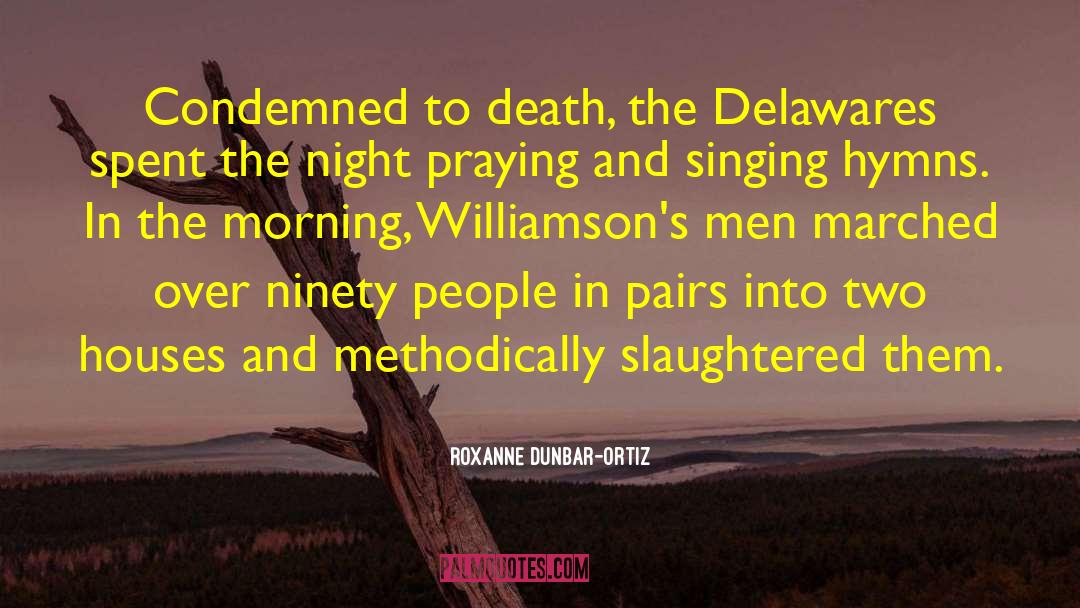
Columbus Day is still a federal holiday despite Columbus never having set foot on any territory ever claimed by the United States.
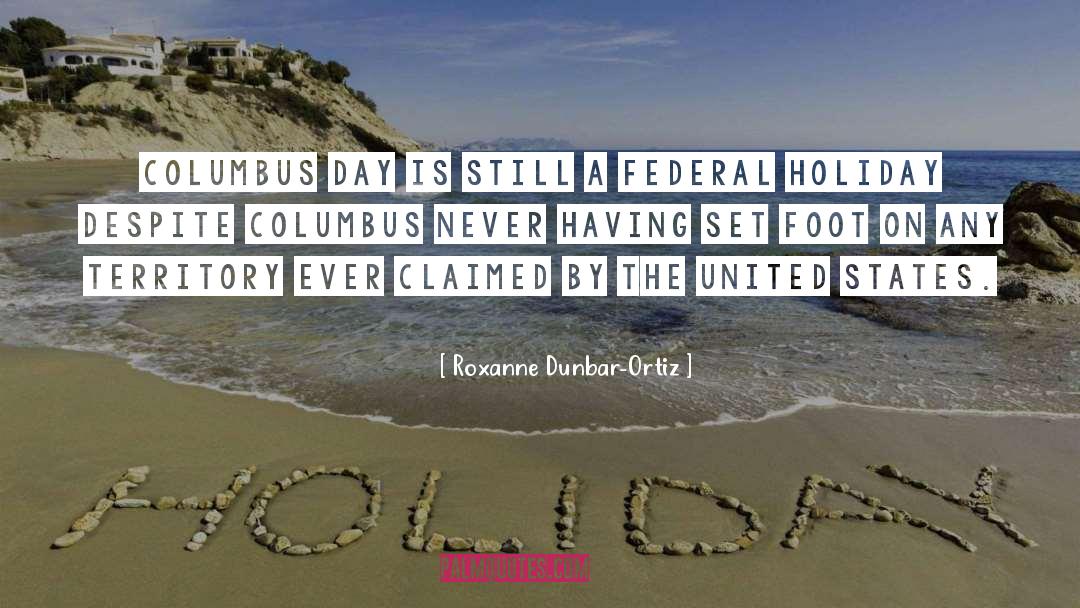
Cultural appropriation is especially egregious when it involves the co-optation of spiritual ceremonies and the inappropriate use of lands deemed sacred by Native peoples.
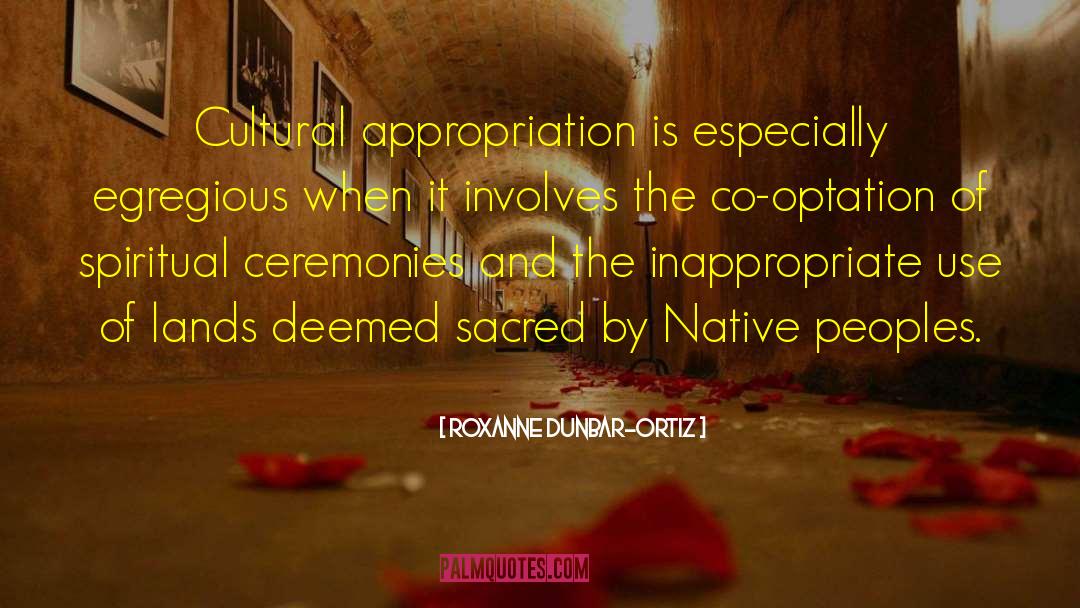
. . . [H]ad North America been a wilderness, undeveloped, without roads, and uncultivated, it might still be so, for the European colonists could not have survived. They appropriated what had already been created by Indigenous civilizations. They stole already cultivated farmland and the corn, vegetables, tobacco, and other crops domesticated over centuries, took control of the deer parks that had been cleared and maintained by Indigenous communities, used existing roads and water routes in order to move armies to conquer, and relied on captured Indigenous people to identify the locations of water, oyster beds, and medicinal herbs.
![Roxanne Dunbar-Ortiz Quotes: . . . [H]ad North Roxanne Dunbar-Ortiz Quotes: . . . [H]ad North](https://palmquotes.com/author/roxanne-dunbar-ortiz-quotes-520875.jpg)
Between 1968 and 1973, the United States and Britain, the latter the colonial administrator, forcibly removed the indigenous inhabitants of the islands, the Chagossians. Most of the two thousand deportees ended up more than a thousand miles away in Mauritius and the Seychelles, where they were thrown into lives of poverty and forgotten. The purpose of this expulsion was to create a major US military base on one of the Chagossian islands, Diego Garcia.
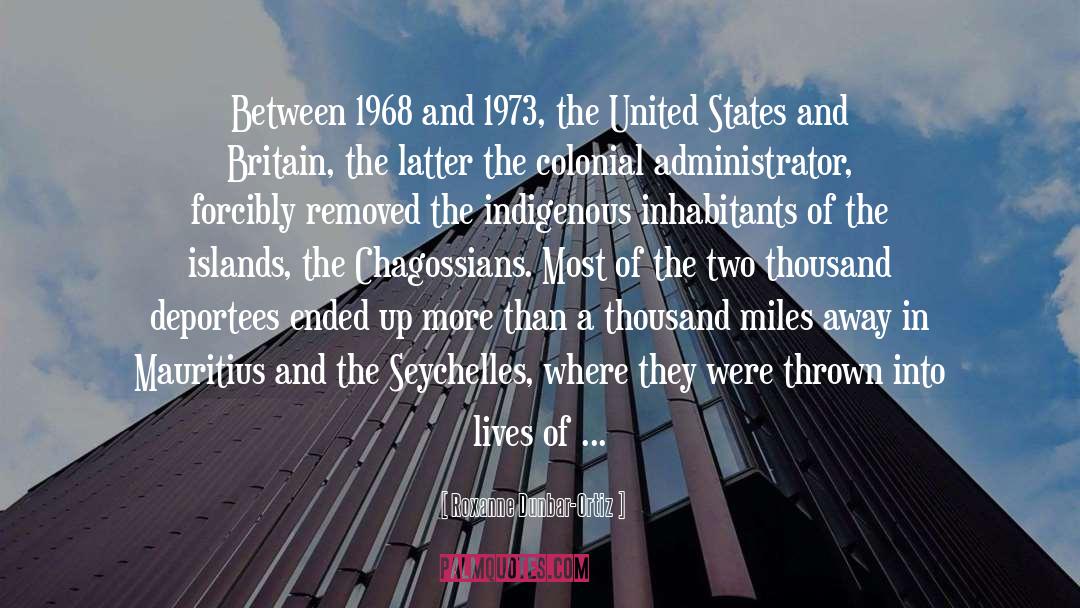
US history, as well as inherited Indigenous trauma, cannot be understood without dealing with the genocide that the United States committed against Indigenous peoples. From the colonial period through the founding of the United States and continuing in the twenty-first century, this has entailed torture, terror, sexual abuse, massacres, systematic military occupations, removals of Indigenous peoples from their ancestral territories, and removals of Indigenous children to military-like boarding schools. The absence of even the slightest note of regret or tragedy in the annual celebration of the US independence betrays a deep disconnect in the consciousness of US Americans.
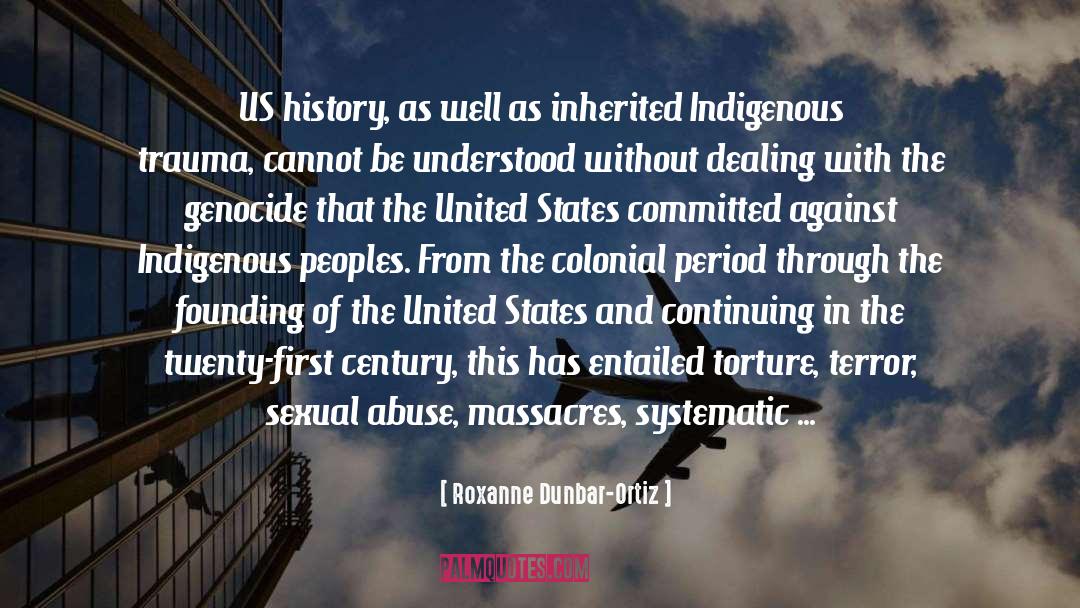
Awareness of the settler-colonialist context of US history writing is essential if one is to avoid the laziness of the default position and the trap of a mythological unconscious belief in manifest destiny. The
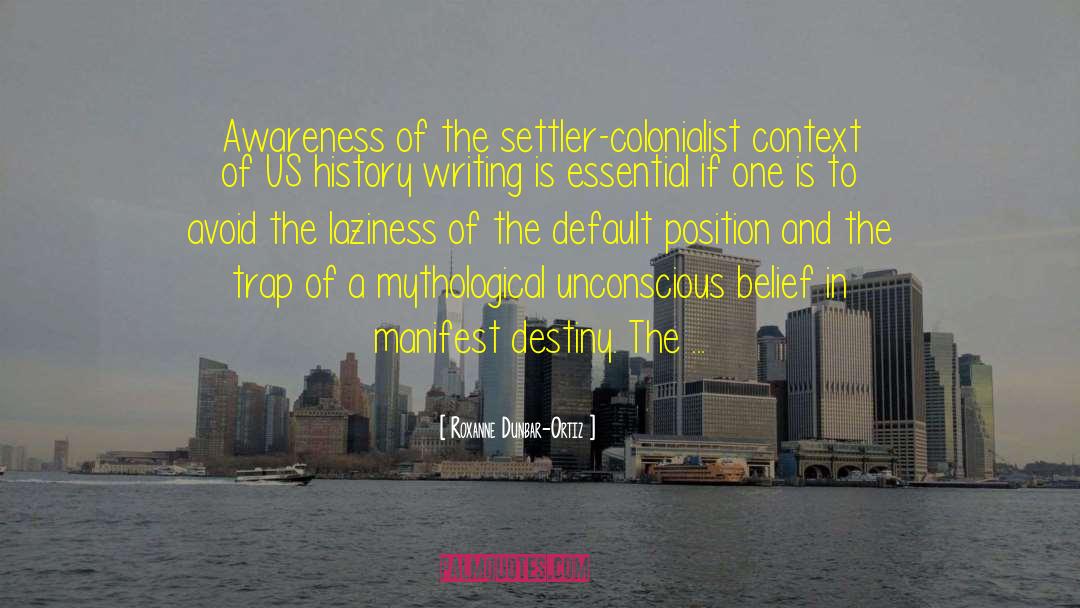
A Georgia volunteer, afterward a colonel in the Confederate service, said: "I fought through the civil war and have seen men shot to pieces and slaughtered by thousands, but the Cherokee removal was the cruelest work I ever knew."34
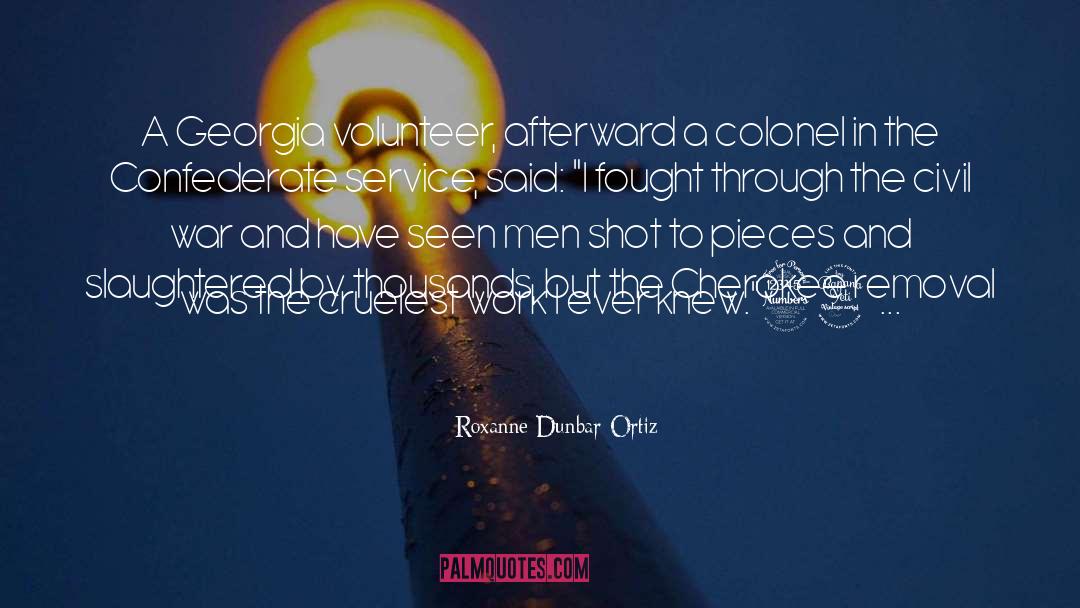
We can think of the land bridge theory as a master narrative that for a couple of centuries has served multiple ideological agendas, lasting despite decades of growing evidence that casts doubt on the way the story has been perpetuated in textbooks and popular media.
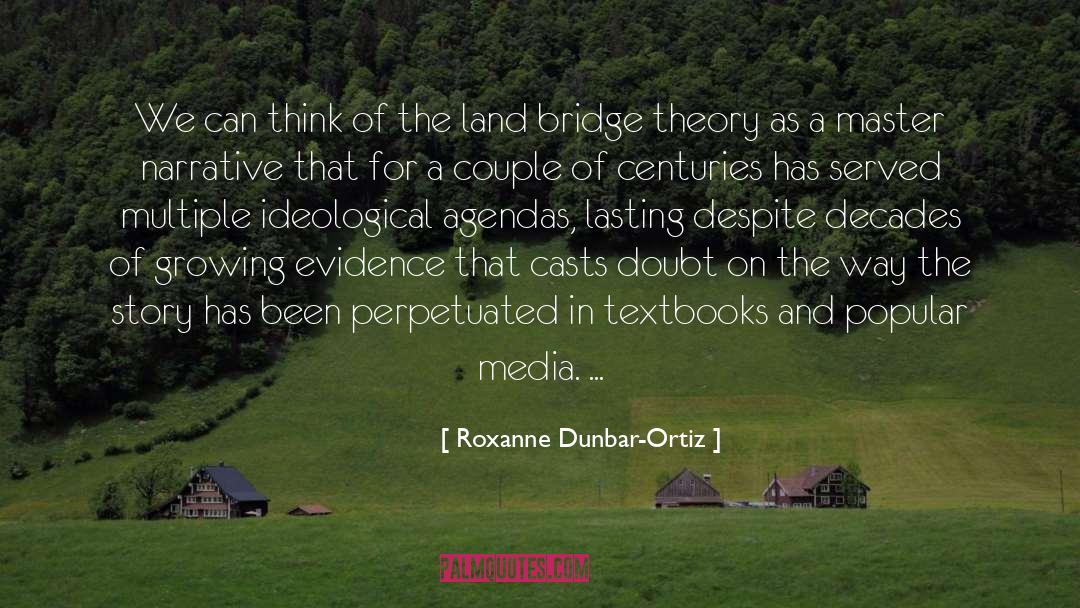
Jodi Byrd writes: "The story of the new world is horror, the story of America a crime." It is necessary, she argues, to start with the origin of the United States as a settler-state and its explicit intention to occupy the continent. These origins contain the historical seeds of genocide. Any true history of the United States must focus on what has happened to (and with) Indigenous peoples - and what still happens.
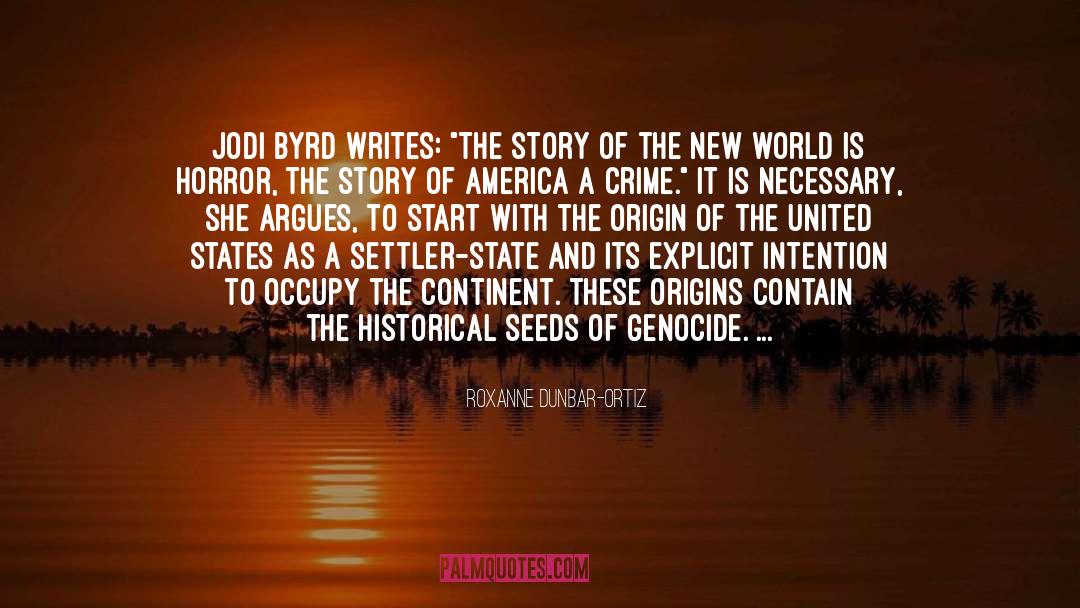
Ceramic trade goods involved interconnected markets from Mexico City to Mesa Verde, Colorado. Shells from the Gulf of California, tropical bird feathers from the Gulf Coast area of Mexico, obsidian from Durango, Mexico, and flint from Texas were all found in the ruins of Casa Grande (Arizona), the commercial center of the northern frontier.
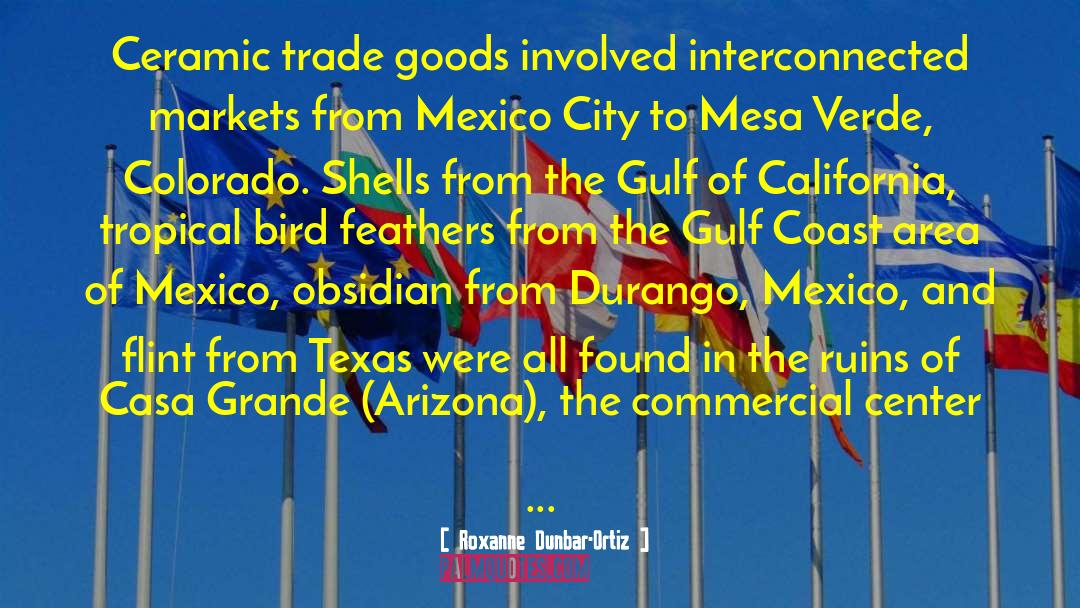
Hanging a banner from the front of the Bureau of Indian Affairs building that proclaimed it to be the "Native American Embassy," hundreds of protesters hailing from seventy-five Indigenous nations entered the building to sit in. BIA personnel, at the time largely non-Indigenous, fled, and the capitol police chain-locked the doors announcing that the Indigenous protesters were illegally occupying the building. The protesters stayed for six days, enough time for them to read damning federal documents that revealed gross mismanagement of the federal trust responsibility, which they boxed up and took with them. The Trail of Broken Treaties solidified Indigenous alliances, and the "20-Point Position Paper,"14 the work mainly of Hank Adams, provided a template for the affinity of hundreds of Native organizations. Five years later, in 1977, the document would be presented to the United Nations, forming the basis for the 2007 UN Declaration on the Rights of Indigenous Peoples.
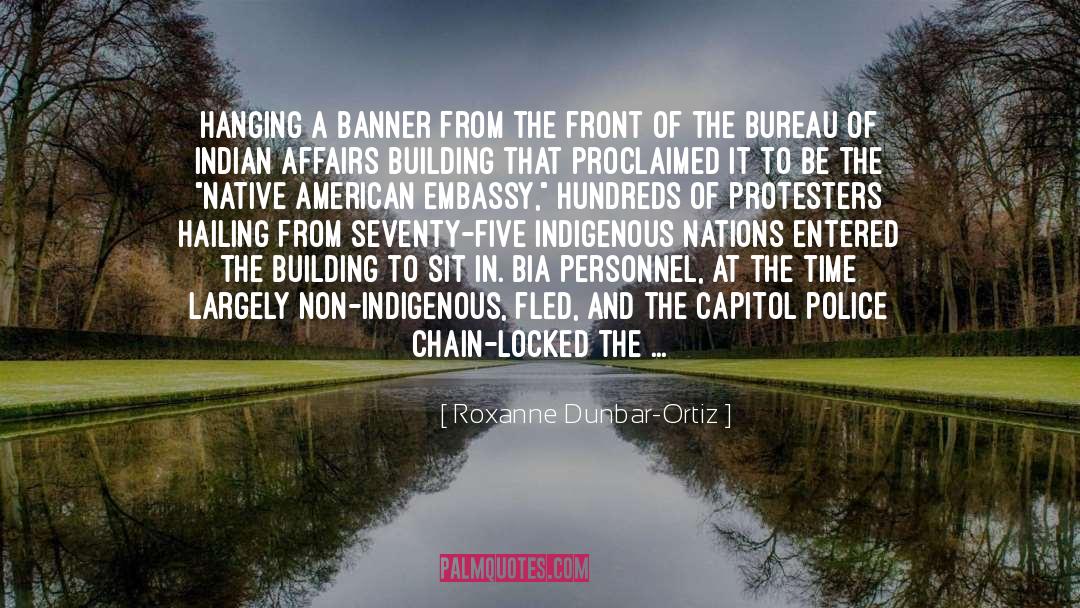
How then can the US society come to terms with its past? How can it acknowledge responsibility? The late Native historian Jack Forbes always stressed that while living persons are not responsible for what their ancestors did, they are responsible for the society they live in, which is a product of that past. Assuming this responsibility provides a means of survival and liberation. Everyone and everything in the world is affected, for the most part negatively, by US dominance and intervention, often violently through direct military means or through proxies.
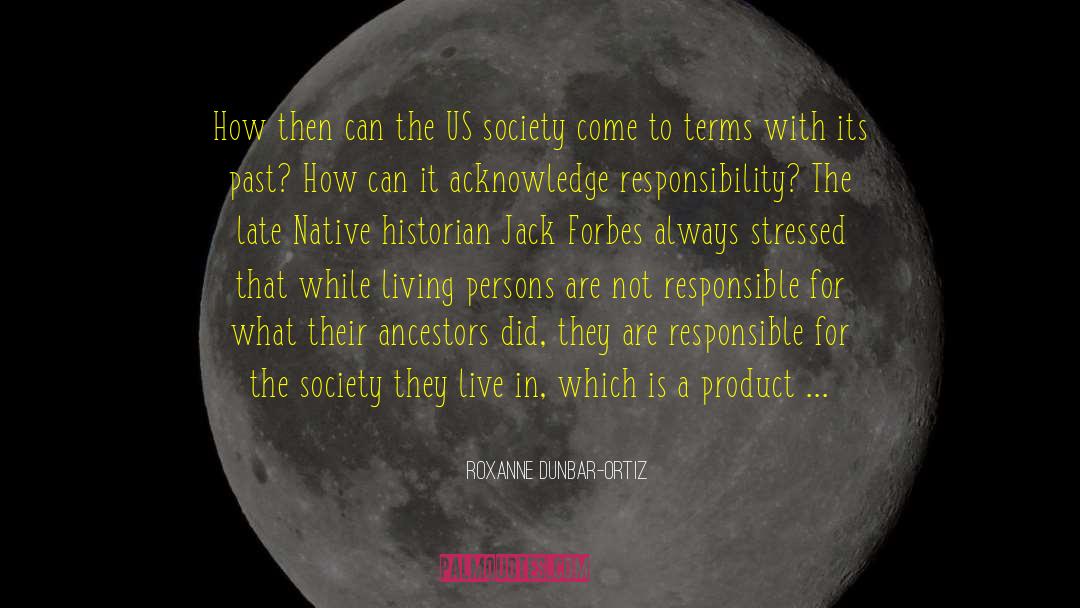
How will the family unit be destroyed? ... [T]he demand alone will throw the whole ideology of the family into question, so that women can begin establishing a community of work with each other and we can fight collectively. Women will feel freer to leave their husbands and become economically independent, either through a job or welfare.
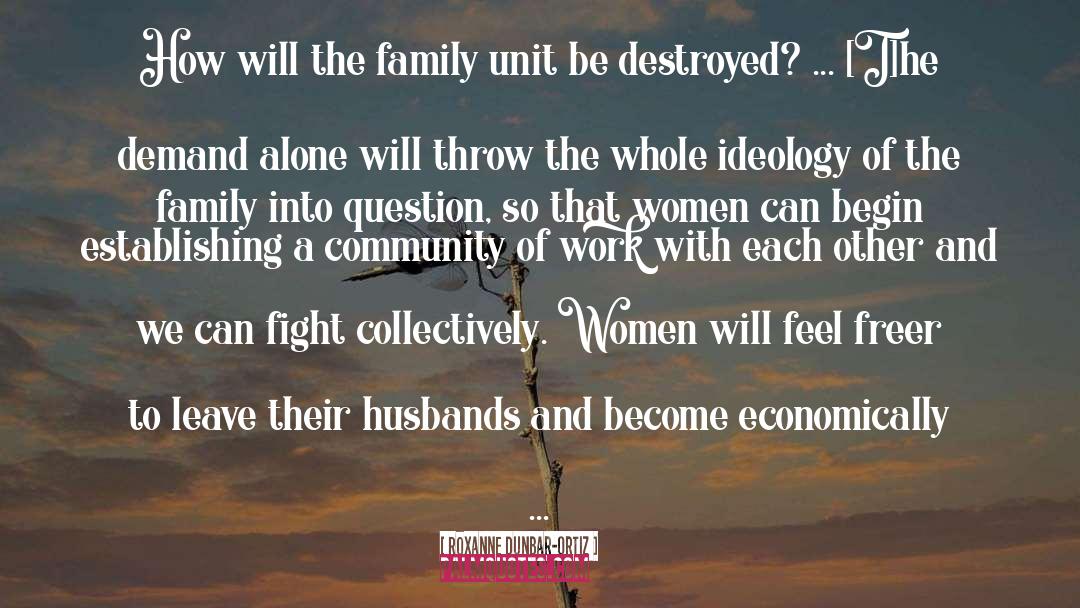
[Theodore] Roosevelt referred to [Emilio] Aguinaldo as a "renegade Pawnee" and observed that Filipinos did not have the right to govern their country just because they happened to occupy it.
![Roxanne Dunbar-Ortiz Quotes: [Theodore] Roosevelt referred to [Emilio] Roxanne Dunbar-Ortiz Quotes: [Theodore] Roosevelt referred to [Emilio]](https://palmquotes.com/author/roxanne-dunbar-ortiz-quotes-408371.jpg)
European institutions and the worldview of conquest and colonialism had formed several centuries before that. From the eleventh through the thirteenth centuries, Europeans conducted the Crusades to conquer North Africa and the Middle East, leading to unprecedented wealth in the hands of a few.
